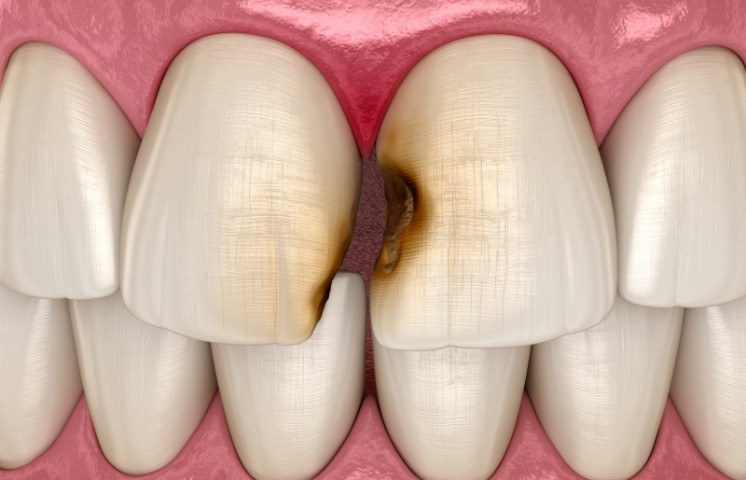We are not a registered Medicare/Medicaid Provider

Toothaches are no laughing matter. That throbbing, persistent pain can sideline even the most resilient person. In fact, toothaches consistently rank among the most bothersome pains people experience. If you’re looking to soothe a toothache naturally, this blog is here to help. While over-the-counter pain relievers can indeed offer temporary relief, sometimes a more natural approach is desirable. Natural remedies can be a good option for mild toothaches, especially if you’d prefer to avoid medication or are waiting to see a dentist. Additionally, these remedies can provide a gentle yet effective alternative, promoting overall well-being without the potential side effects associated with pharmaceutical options. Furthermore, many natural solutions are easily accessible and can be conveniently used at home, offering a quick and soothing response to discomfort. Therefore, considering natural remedies can be both a practical and beneficial choice for managing mild toothaches.
Understanding Tooth Nerve Pain
Before diving into remedies, let’s understand what’s happening inside your tooth. The centre of your tooth, called the pulp, houses nerves and blood vessels. When this sensitive area becomes inflamed or irritated, it triggers the sharp, shooting pain we know as a toothache.
Natural Remedies for Relief
While natural remedies can’t fix the underlying cause of tooth nerve pain, they can provide some welcome relief. Here are some options to consider:
- Saltwater Rinse: This is a classic for a reason. Salt has natural antibacterial properties that can help reduce inflammation in the gums and mouth. Mix half a teaspoon of table salt into a warm glass of water and swish thoroughly for 30 seconds. Repeat several times a day.
- Cold Compress: The coolness helps numb the area and reduce inflammation. Wrap some ice cubes in a clean cloth and apply it gently to your cheek, near the affected tooth. Apply for 15 minutes at a time, with breaks in between to avoid irritation.
- Cloves: Cloves are a natural pain reliever thanks to a compound called eugenol. Dab a small amount of clove oil (diluted with carrier oil like coconut oil) on a cotton swab and apply it directly to the affected tooth. Be cautious, though, as clove oil can irritate the gums. Pregnant or breastfeeding women should avoid clove oil.
- Peppermint Power: Peppermint oil has a numbing effect and can freshen breath. Put a few drops of peppermint oil (diluted with carrier oil) on a cotton swab and apply it to the sore area. Alternatively, swish with cooled peppermint tea (don’t swallow!).
- Garlic’s Anti-Inflammatory Properties: Garlic has natural antibiotic properties that can help fight infection. However, the evidence for its effectiveness on toothaches is mostly anecdotal. Make a paste with a crushed clove of garlic and apply it directly to the affected tooth (avoid the gums).
Important Note: These remedies are meant for temporary relief, not a permanent fix. If your toothache is severe, persistent, or accompanied by swelling or fever, see a dentist immediately.
Lifestyle Changes for Long-Term Relief
In addition to these remedies, some lifestyle changes can help manage tooth nerve pain and promote overall oral health:
- Maintain good oral hygiene: Brush your teeth twice a day with fluoride toothpaste and floss daily to remove food particles and plaque buildup, which can contribute to toothaches.
- Eat a healthy diet: Limit sugary and acidic foods that can irritate sensitive teeth. Opt for soft foods that put less pressure on your teeth while you’re experiencing pain.
- Manage stress: Stress can worsen toothaches. Practice relaxation techniques like deep breathing or meditation to keep stress levels in check.
If your toothache persists for more than a day or two, worsens, or is accompanied by other symptoms like fever, swelling, or difficulty breathing, see a dentist right away. Early diagnosis and treatment can prevent the pain from worsening and potentially save your tooth.
Remember, natural remedies are just that – remedies. They can provide temporary relief but won’t address the underlying cause of your toothache. A dentist in Haymarket can diagnose the cause of your pain and recommend the best course of treatment, whether it’s a filling, root canal, or other procedure. With proper care, you can get that nasty toothache under control and get back to enjoying pain-free smiles.



